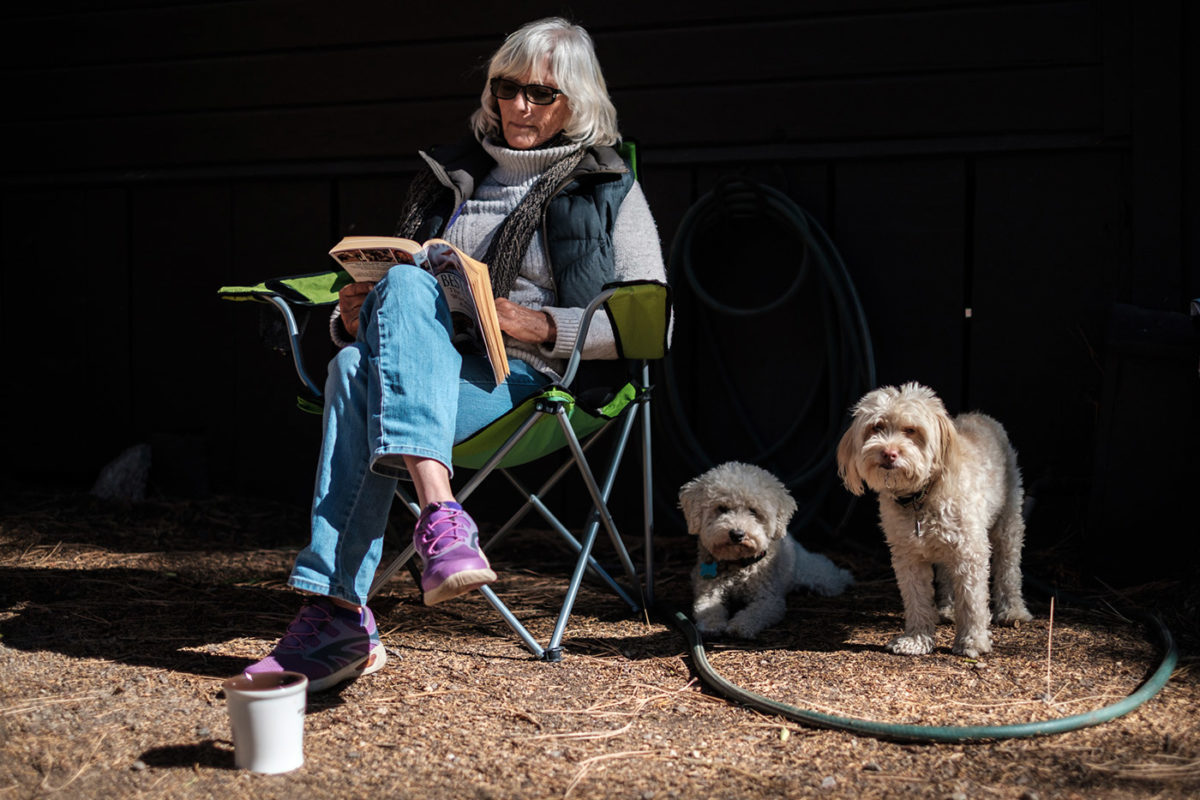Everything that happens, happens somewhere. Readers need to know if the story occurred in the mountains, the desert, the marshy bayous of the south, or the slums of a city. Our senses come alive when we know the setting. After a tragedy or a kiss, we want a tree.
On the day of my father’s funeral, I was driving back home to L.A. on Highway 99. It was a late February afternoon, after a hard rain. Dark clouds filled the sky. As I passed miles of walnut trees in the San Joaquin Valley, the sun came out. The entire leafless orchard was suddenly lit in red-gold light. The trees seemed to implore heaven with their naked, outstretched arms. In that moment, where the arms of the trees lit up against the dark, cloudy sky, I broke open. I was finally able to cry for my father. Nature expressed what I had no words for, but my heart felt.
My book, Bodies Unbound, is a memoir about my forty years as a masseuse. Touching all those bodies gave me the gift of being able to “read” them; through the way a client’s feet fall while laying on my massage table, I can tell what issues have been passed down from generations of troubles. A pastor in Brooklyn read my book and contacted me to ask me to work with his parishioners—most of them African-American—to help them discover how they were still passing the effects of slavery to their children. I worked with over a hundred of these people over the course of a year, meeting with them in groups of 15 or so. The work was intense. Often, the cries and screams of the people I worked with, when they connected with their personal lives, were unbearable.
When I returned home after spending a week with my friends in Brooklyn, I would sit, exhausted, in my backyard, which was filled with roses and lush green lawn. I could see the oak trees beyond my fence and the mountains beyond that. The peace of the landscape in the little town by the sea where I lived made me crazy and disoriented. I could still hear the screams of the people I worked with as they connected with the way they felt. Nothing I saw in my back yard reflected this anguish. My inner landscape would have been better reflected by abandoned cars, gangs on street corners, cyclone fences, asphalt streets with no trees, little children with tears running down their cheeks. Instead, everywhere I looked, I saw nothing but beauty. It was a torment. I felt as though I were losing my mind. I could not find peace until I returned to the people in Brooklyn and their poorly lit, dilapidated streets. In this way, place has opposed rather than resonated with my feelings.
Whether the landscape or scenery in which you find yourself reflects or jars against your internal state, the place can unlock important emotions and recognitions. This can bring greater emotional immediacy to your writing.
Writing about place is almost as difficult as writing about emotions. If you read travelogues, you will see that the genre abounds with clichés and sloppy descriptions. Quaint, charming, romantic and picturesque are words that say nothing. Don’t use them. Ever.
Don’t use words that describe what everyone on earth knows. Don’t say the beach had sand or there were seagulls. Look for ways the place is pertinent to your narrative. How does it add a layer to your story by its very presence?
Writing Class Prompt:
Write about a place where you had a strong emotional experience. Use the landscape or the room to describe your feelings. What colors, tastes, or smells added to your experience?

